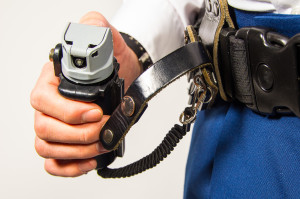The high profile gender discrimination lawsuit filed by Ellen Pao against her former employer Silicon Valley investment firm Kleiner Perkins Caufield & Byers culminated this week with an expert witness hired by the plaintiff eviscerating a defense expert’s testimony that the venture capital firm did not engage in discrimination against women. Pao’s $16 million lawsuit has gained national attention for calling to question the male-dominated culture of Silicon Valley, so it is no surprise that both sides have turned to employment discrimination expert witnesses to discuss treatment of women in a high-end venture capital firm.
Ellen Pao Files High Profile Gender Discrimination Case against Venture Capitalist Firm
Ellen Pao, who was terminated from employment by venture capital firm Kleiner Perkins Caufield & Byers in October 2012, filed a lawsuit in California alleging that the company engaged in a pattern of sexual discrimination that created a hostile work environment for women. During the trial, which has been closely watched in Silicon Valley investment circles, Pao’s lawyers painted a misogynistic picture of Kleiner Perkins by firing off a number of allegations including male partners saying women “kill the buzz” at meetings, taking all-male ski trips and dinners with Al Gore, having sexually inappropriate conversations about porn stars and “hot” female executives while on private planes, and giving inappropriate gifts such as a book of erotic poetry given to Pao by a senior male colleague.
Pao also claims that she was the victim of inappropriate sexual advances, was passed over for promotions because of her gender, and was retaliated against by a senior partner with whom she had an affair after she called the relationship off. Citing an instance where two men with less seniority and experience were promoted instead of her, Pao highlighted her sexual discrimination lawsuit by arguing that the male partners preferred men in management roles.
Kleiner Perkins has focused much of its defense efforts on pointing to a consistent pattern of negative performance reviews given to Pao since she joined the firm in 2005, and her conflicts with employees throughout the firm. Attorneys for Kleiner Perkins presented evidence to the jury that Ellen Pao was not qualified to succeed at the company regardless of her gender. Supplementing the defense’s argument was a report from an outside investigator, Stephen Hirschfeld, who argued that the firm’s employment practices showed no evidence of gender discrimination.
Defense Expert Argues Against Gender Discrimination
On the eighth day of the trial, Stephen Hirschfeld took the stand as a defense expert witness to present the results of his investigation into Pao’s allegations that Kleiner Perkins engaged in gender bias against female employees. According to Hirschfeld, Ms. Pao is smart, but difficult to work with and was unable to substantiate her serious allegations against the company. Hirschfeld found no evidence of all-male trips that Pao complained of, and concluded that the relationship she had with a former managing partner at the firm was consensual and without consequence on her career. After interviewing women who worked at Kleiner Perkins, Hirschfeld called the environment “tough but fair” where women can succeed.
In regards to Pao not getting promoted, Hirschfeld presented evidence that the plaintiff’s performance had not been well reviewed throughout her career, concluding that the partners had reason to pass over her in favor of more junior members of the firm. Pao’s attorney criticized Hirschfeld for providing an incomplete analysis of the Kleiner Perkins environment, and this week the plaintiff called her own expert witness to contradict Hirschfeld’s investigation.
Plaintiff Expert Criticizes Bias Investigation in Pao Gender Discrimination Case
Attorneys for Ellen Pao called Allison West of Employment Practices Specialists as an employment discrimination expert witness to contradict Hirschfeld’s report that Kleiner Perkins did not engage in discriminator behavior. According to West, Hirschfeld’s analysis failed to thoroughly evaluate whether or not the men at the company were held to different standards than the women. While Hirschfeld researched Pao’s direct claims, West argued that he failed to look at men who were in the same position as the plaintiff to determine if they had similar challenges in succeeding at the firm. Further, West testified that Hirschfeld did not completely investigate Pao’s complaints by failing to interview all relevant witnesses or consider evidence supporting her discrimination argument.
On cross-examination, West was subject to a rigorous attack from lead attorney for Kleiner Perkins, Lynne Hermle. Hermle pointed out that Pao’s performance reviews had very little positive feedback, while the reviews for the two men who were promoted over her had several glowing remarks, arguing that West had also conducted a bias investigation into Pao’s case. The Pao trial, which could send significant ripples across the Silicon Valley business landscape, will wrap up this week.













